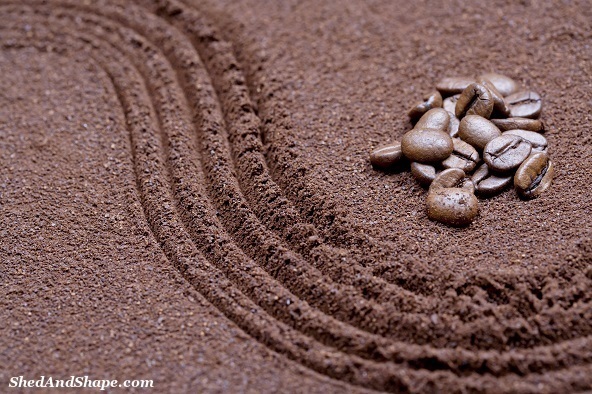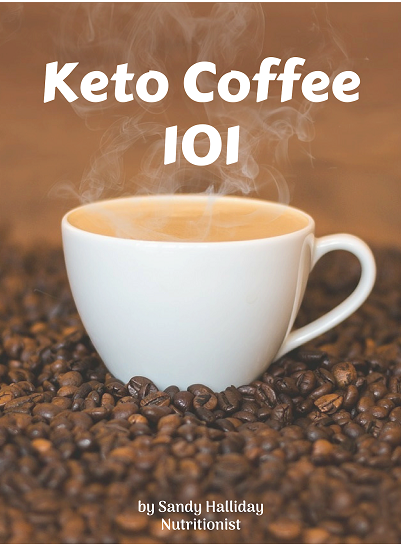Coffee flour is getting quite a lot of buzz lately and even keto dieters are showing interest in this type of flour. Because of its slightly fruity flavor, the flour can be made into pastries and other sweet recipes and can help boost your fiber intake.
Packed with nutrients, coffee flour is preferred mostly by health-conscious individuals who are looking for a healthier alternative to their usual flour. But is this flour ideal for the ketogenic diet? Read on to find out.
What Is Coffee Flour?
Coffee flour, the latest superfood, is exactly what it sounds like – flour that’s made of coffee. There are two different types of the flour. One is made from discarded coffee cherries and the other is made from beans.
The first type of flour is made from leftover coffee cherry pulps that are often discarded during coffee production. Your favorite cup of coffee is made from those beans encased in red cherry fruit.
The second type of coffee flour is made from green coffee beans except they are roasted at a much lower temperature. This flour does contains caffeine. If you were to bake muffins with it, a muffin that contained about 4 grams of green coffee bean flour would contain about as much caffeine as a cup of coffee.
Coffee is rich in antioxidants, but since the beans are often exposed to high temperature during roasting, the antioxidant benefits are lessened. According to Keri Grans, a New York-based nutritionist,
“The Coffee flour is made from green coffee beans [beans that have yet to be roasted], same as in regular coffee. However, they are roasted at a much lower temperature than typical coffee beans are and then ground into a flour. Instead of being roasted at 400 degrees Fahrenheit, the beans used in coffee flour are roasted at 300 degrees or below.”
Typically, the flour is incorporated to pastries and other bread-based items, such as pancakes, waffles, cookies, muffins, and bread. And although they are made from coffee, the baked goods will not really taste like coffee. The flour can also be made into spreads, sauces, smoothies, and added into soups, pasta dishes, etc.
Nutrition Facts of Coffee Flour
The flour is packed with nutrients making it a healthy alternative to your usual flour. One tablespoon contains 6 grams of fiber and provides 4% calcium, 14% potassium, and 15% iron. It only has 35 calories for every serving. What’s more, the cherries used to make the flour are a great source of antioxidants that can help boost your immune system.
For the second type of flour, the processed used in producing the flour allows the coffee to retain its chlorogenic acid or CGA. This is a type of antioxidant that appears to modulate how fast the body would break down glucose. It does contain caffeine which the flour from the coffee cherries does not.
As stated on Eater.com,
“The process involves par-baking green coffee beans at a relatively lower temperature for a short period of time, which retains the CGA that’s typically lost in the regular coffee roasting process. The resulting light-colored beans are no good for brewing and drinking, so instead, it’s made into a finely milled flour that has up to four times as much CGA as regular roasted coffee beans.”
The flour is also a great source of fiber, including soluble and insoluble fiber that supports proper digestion. In fact, this is the flour’s biggest health benefit. Depending on the serving size, the flour can supplement your diet since it’s a great source of protein and antioxidants. What’s more, the flour is gluten-free, sodium-free, and vegan. In fact, it covers almost all of your daily dietary needs!
Is Coffee Flour Ideal for Keto?
The coffee flour is definitely healthy. But is it great for keto?
The flour is actually low in fat, which makes it ideal for those who are cutting back on fats. Compared to almond flour and coconut flour, which are both low carb flour alternatives, coffee flour is much lower in fat. So what does this mean for a keto dieter?
If you are following a low carb ketogenic diet, adding low-fat flour to your diet is not really a problem. However, you cannot expect coffee flour to help with your daily fat intake. You can instead get your fats from other sources, such as coconut oil, avocados, and some other fats that are great for a low carb diet.
Rich in Fiber
In addition, the flour is packed with fiber. As mentioned, the coffee flour’s biggest benefit is that it’s a great source of soluble and insoluble fiber. One tablespoon has 5.2 grams of fiber (1.8 g soluble and 3.4 g insoluble). Fiber is important in any healthy diet plan, most especially in the keto diet where constipation is a common problem.
The high amount of insoluble fiber in the flour reduces its digestible carbohydrates. Although one tablespoon of the flour contains 6.5 grams of carbs, the insoluble fiber will not be absorbed by your body and can be deducted to the total carbohydrate count.some
Adding Coffee Flour to Your Keto Diet
If you’re going to incorporate the coffee flour to your favorite low-carb pastry, consider combining it with other low carb flour alternatives, such as almond flour. Use ingredients that are rich in healthy fats, such as coconut oil, butter, etc.
The flour is highly versatile and can replace around 10 – 20% of the typical flour used in recipes. Its nutty taste goes well with most of the baked goods, such as cakes, cookies, muffins, etc.
You can make these Low Carb Coffee Flour Cacao Fat Bombs with it or you could add it to your keto smoothie for added flavor and a fiber boost!
It may take a lot of experimenting before you can figure out how much coffee flour you can include in your low-carb recipes. Also, the flour has a slightly bitter and nutty taste and might give a much darker color to your baked goods, so this is something to consider when experimenting.
Caffeine in Coffee Flour
You might be wondering if you can still get your caffeine fix from the flour. Well, the flour made from the coffee cherries contains about 62 mg caffeine per tablespoon whereas the flour from the green beans contains about 200 mg per tablespoon.
Conclusion
Overall coffee flour is a healthier alternative to some of the other types of flour on the market but one thing to remember is that coffee crops get sprayed with with more pesticides than most and the majority of coffee flours are not organic.
Although much lower in fat compared to other flour alternatives, adding it to your keto diet is not really a problem for as long as you keep it minimal. It’s a great way to boost the nutritional value of your keto recipes without having to sacrifice the flavor.










